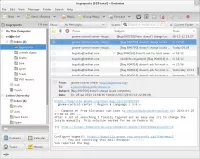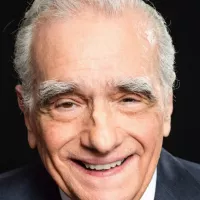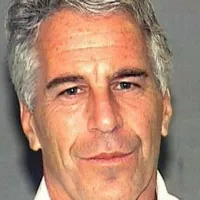Star Citizen is a multiplayer space trading and combat simulation game developed by Cloud Imperium Games, led by Chris Roberts. Announced in 2012, it gained significant funding through a successful Kickstarter campaign. After over a decade in development with no firm release date, the game remains in early access. Roberts indicated a potential release window of 2027 or 2028, with its single-player spin-off, Squadron 42, targeted for 2026.
2010: Pre-Production Begins
Pre-production of Star Citizen began in 2010 with production starting in 2011.
2011: Production Starts
Pre-production of Star Citizen began in 2010 with production starting in 2011 using CryEngine 3.
October 10, 2012: Star Citizen Officially Announced at GDC
Star Citizen was officially announced at GDC on October 10, 2012, during which the website built for the campaign crashed.
2012: Crowdfunding Campaign Begins
In 2012, during the crowdfunding campaign, Chris Roberts suggested a potential release date for the game in 2014 and emphasized the importance of constant iteration and updates post-launch.
2012: Derek Smart Backs the Project
In 2012, independent game designer Derek Smart became one of the original early backers of Star Citizen.
August 2013: Hangar Module Announced
In August 2013, Chris Roberts announced that they would be releasing the "Hangar Module", a way for players to explore an enclosed space and some of the ships that have been completed. The module was released six days later, on August 29, and was considered the "first deliverable" of the project.
December 2013: Arena Commander Module Delayed
In December 2013, the Arena Commander module's release, originally scheduled for that month, was delayed by six months.
2013: Release of Game Modules Begins
In 2013, Cloud Imperium Games started releasing parts of the game, known as "modules", to give players an early opportunity to experience gameplay features before the official release.
2013: Most-Funded Crowdfunding Project
In 2013, Star Citizen became the "most-funded crowdfunding project anywhere", raising US$15 million in less than a year.
June 4, 2014: Arena Commander Module Released
Arena Commander, the "flight combat" module, was released on June 4, 2014, allowing players to test ship combat and racing against other players or AI opponents.
June 2014: Arena Commander Module Initial Release
In June 2014, the Arena Commander module was released after a six-month delay from its original December 2013 schedule.
August 11, 2014: Arena Commander Updated and Opened to All Players
On August 11, 2014, Arena Commander was updated to open access to all players and added the Capture the Core game type.
November 2014: Initial Estimated Release Date
The initial estimated target release date for Star Citizen was stated to be November 2014, with all proposed features available at launch.
2014: Guinness World Record
In 2014, Guinness World Records recognized Star Citizen as having the "largest single amount ever raised via crowdsourcing", with US$39,680,576 pledged on its website. Also, during the Gamescom event on August 15, Chris Roberts announced that crowdfunding had surpassed US$50 million.
2014: Initial Squadron 42 Release Missed
In 2014, Squadron 42, the single-player component, was initially scheduled for release, but it suffered delays.
2014: Grey Market Arises
In 2014, a grey market emerged from Star Citizen's funding practices, specifically the sale of limited-run ships. CIG made changes to the "gifting system" and "Chris Roberts expresses no desire to clamp down on the Star Citizen grey market".
2014: Comparisons to Elite: Dangerous
In 2014, comparisons were made between Star Citizen and Elite: Dangerous, another crowdfunded space flight simulation game released in the same year, as Star Citizen faced continued delays.
2014: Projected Release Date
In 2014, the game was initially projected to be released according to Chris Roberts, but this date was ultimately missed as development continued.
2014: Original Anticipated Launch Date
The initial launch of Star Citizen was originally anticipated for 2014, but has been repeatedly delayed.
July 2015: Smart Claims Project Unachievable
In July 2015, Derek Smart claimed that Star Citizen could never be completed as pitched due to its increased scope and lack of adequate technology, leading to a refund and cancellation of his account.
August 2015: Smart Demands Accounting Records
In August 2015, Derek Smart sent a demand letter to Cloud Imperium Games requesting promised accounting records for backer money, a release date, and a refund option for all backers.
October 2015: Controversial Articles Published
In October 2015, The Escapist magazine published a pair of highly controversial articles citing sources who claimed the project was in trouble, leading to threats of legal action from Cloud Imperium Games.
2015: SATA Ball Announced
During development in 2015, a game type called SATA Ball was announced, an in-game sport where players would be split up into two teams and would fight each other in a zero-gravity environment. It has yet to be implemented in the game.
2015: Star Marine Delayed
In 2015, Star Marine was originally scheduled for release, but it was delayed until December 2016.
2015: Persistent Universe Module Made Available
In 2015, the "Persistent Universe" module was made available for testing to those who had pre-purchased Star Citizen.
2015: Star Marine Module "Delayed Indefinitely" or "Cancelled"
Just prior to the module being pulled from Illfonic, outlets began reporting in 2015 that the Star Marine module was "delayed indefinitely" or "cancelled".
June 10, 2016: Terms of service amended regarding refunds
On June 10, 2016, Cloud Imperium Games amended its terms of service, removing a clause that allowed backers to obtain a refund if the game was not released within 18 months of its initially estimated delivery date. The revised terms stated that refunds would only be provided if the project was abandoned by the developers, with exceptions made for backers who had spent money before the change and requested a refund.
September 2016: Kotaku UK Series on Controversies
In September 2016, Kotaku UK wrote a five-part series about the various controversies surrounding the Star Citizen project, including a long-rumored feud between Smart and Roberts.
December 2016: Vaporware Award
In December 2016, Star Citizen was awarded Wired's 2016 Vaporware Award.
December 2016: Star Marine Release
In December 2016, Star Marine was released after being delayed from its original 2015 release date.
December 2016: Switch to Amazon Lumberyard Engine
Star Citizen switched to Amazon Lumberyard, now called StarEngine, in December 2016. The decision was based on its online services like Amazon Web Services integration and the Twitch social component.
December 23, 2016: Star Marine Module Released
The Star Marine module was released on December 23, 2016, a year after its original projected release date.
2016: Comparisons to Other Space Sims
In 2016, Star Citizen was compared to No Man's Sky and Elite: Dangerous in a Polygon opinion article, and PC Gamer writer Luke Winkie described Star Citizen as "the other super ambitious, controversial space sim on the horizon".
2016: Squadron 42 Release Window Suggested
In 2016, after missing the initial 2014 release, a new release window was suggested for Squadron 42 before the project was delayed indefinitely.
January 2017: Financial Security and Backer Rewards
In January 2017, Chris Roberts stated that even without further funding, they had sufficient funds to complete Squadron 42, with revenue from it potentially used for Star Citizen's completion, furthermore, backers receive tiered pledge packages with virtual rewards and can earn all rewards in-game, except cosmetic items and Lifetime Insurance (LTI), without spending more money.
March 2017: Settlement Reached
In March 2017, it was reported that Cloud Imperium Games and The Escapist had settled their dispute out of court, with both parties agreeing to delete their comments about each other.
May 19, 2017: Crowdfunding Surpasses $150 Million
On May 19, 2017, Star Citizen's crowdfunding efforts surpassed $150 million, continuing through in-game transactions and subscriptions.
September 2017: Anonymous Redditor Hoax
In September 2017, Ars Technica reported that an anonymous Redditor claimed to have received a US$45,000 refund after five weeks of effort, but the story was later retracted after it was disproven as a hoax.
December 2017: Alpha 3.0 Released
Alpha 3.0 wouldn't release until December 2017, and following its release the developers implemented a public roadmap that would show features and content that was in development for the future.
December 2017: Crowdfunding Exceeds $170 Million
By December 2017, crowdfunding from backers exceeded US$170 million, coinciding with Star Citizen's release in early access.
December 2017: Crytek files lawsuit against Cloud Imperium Games
In December 2017, Crytek, the developers of CryEngine, filed a lawsuit against Cloud Imperium Games for copyright infringement and breach of contract. The complaints included the continued use of CryEngine after the migration to Amazon Lumberyard, failure to disclose modifications to CryEngine, using the same engine for two separate products instead of one, and improper removal of the CryEngine logo from game materials.
2017: Development Spending
From 2012 to 2017, Cloud Imperium Games spent US$193 million and reserved $14 million on development.
2017: "Most Likely to Flop" Award
In 2017, Massively OP awarded Star Citizen its "Most Likely to Flop" award for the second consecutive year.
2017: Star Citizen Released in Early Access
In 2017, Star Citizen was released in early access and continues to receive updates.
2017: Virtual Land Claims Announced
In 2017, virtual land claims, a feature not yet implemented in the game, were announced for sale, attracting criticism regarding their lack of availability and potential pay-to-win advantages.
January 2018: Motion to dismiss lawsuit
In January 2018, Cloud Imperium Games asked the court to dismiss the lawsuit filed by Crytek.
July 2018: Small claims court case initiated
In July 2018, a backer initiated a small claims court case against Cloud Imperium Games seeking a refund of US$4,496, citing numerous delays, broken promises, and changes in the scope of the title. The backer argued that changes to the game would limit his ability to play due to disability. The judge sided with Cloud Imperium Games.
August 2018: Monetization and Currency Cap
In August 2018, Cloud Imperium Games attempted to monetize the live stream broadcast of CitizenCon and later removed a cap on in-game currency, leading to criticism over pay-to-win mechanics.
December 2018: Client-Side Object Container Streaming Released
During the development of Star Citizen's Alpha 3.8 update, the developers released a client-side version of Object Container Streaming in December 2018.
December 2018: Clive Calder Invests
In December 2018, Clive Calder purchased a 10 percent stake in Cloud Imperium Games for US$46 million, valuing the company at $460 million.
December 2018: Claims dismissed in Crytek Lawsuit
In December 2018, the judge dismissed claims regarding Cloud Imperium Games' right to use another game engine and their obligation to promote CryEngine.
2018: Beta Stage Announcement
In 2018, Cloud Imperium Games announced a plan to enter the beta stage of Squadron 42's development before the end of the first quarter of 2020.
May 2019: Amazon email submitted during dismissal motions
During dismissal motions in May 2019, Cloud Imperium Games submitted an email sent from Amazon to Crytek, stating that the company granted a license to its Lumberyard engine in 2016, which included rights to CryEngine in their license agreement.
May 2019: Forbes report on FTC complaints
In May 2019, a Forbes magazine report alleged that a backer continued to purchase ships after a lawsuit was closed. The same report noted that a Freedom of Information Act request had shown that the U.S. Federal Trade Commission had received 129 complaints concerning Cloud Imperium Games.
2019: Quarterly Schedule for Updates Adopted
Feature additions continued through 2019 as Cloud Imperium Games adopted a quarterly schedule for providing updates to the module, though concerns over its lengthy development continued.
2019: Beta Release Planned Before Q2 2020
In mid-2019 CIG stated that a beta release of Squadron 42 was planned before the end of Q2 2020, then an estimated Q3 2020 on a now abandoned roadmap.
January 2020: Crytek motion to dismiss lawsuit
In January 2020, Crytek filed a motion to dismiss the lawsuit against Cloud Imperium Games without prejudice or legal fees, with the option to resume it after the release of Squadron 42. Cloud Imperium Games countered with a motion to dismiss with US$500,000 in legal expenses paid by Crytek.
February 2020: Settlement proposal filed
In February 2020, Crytek and Cloud Imperium Games filed a settlement proposal, with a 30-day request to file a joint dismissal of the lawsuit with undisclosed terms.
March 2020: Additional Investment Received
In March 2020, Cloud Imperium Games received an additional $17.25 million investment, raising the total private funding to $63.25 million.
June 2020: Combined Sales Exceed $300 Million
In June 2020, combined regular sales from early access and original crowdfunding for Star Citizen exceeded $300 million.
December 2020: No Official Release Date or Gameplay Footage for Squadron 42
In December 2020, Chris Roberts announced that there will be no official release date or gameplay footage for Squadron 42 at this time.
2020: Dividend Payments
In 2020, CIG financials for the UK revealed that it had paid about £1 million in dividends to shareholders.
2020: Beta Date Pushed Back
In 2020, the beta release date for Squadron 42 was pushed back multiple times, first to the end of the second quarter and then to the third quarter, which passed without any news.
May 19, 2021: Hangar Module Disabled in Patch 3.13.1a
As of Star Citizen Alpha patch 3.13.1a, which was released May 19, 2021, the Hangar Module is disabled due to ongoing issues.
September 2021: ASA upholds complaint regarding marketing transparency
In September 2021, the United Kingdom's Advertising Standards Authority (ASA) upheld a customer complaint citing a lack of transparency in marketing emails from Cloud Imperium Games regarding email promotions for vessels in development. As a result, Star Citizen marketing emails now include a disclaimer about the nature of concept ships.
November 2021: New Office Announcement
In November 2021, Cloud Imperium announced the opening of a new office in Manchester, scheduled to open in May 2022.
November 2021: Combined Sales Surpass $400 Million
In November 2021, the combined total of early access sales and crowdfunding for Star Citizen surpassed $400 million.
May 2022: Manchester Office Opening
In May 2022, Cloud Imperium's new office in Manchester opened, becoming the company's UK headquarters, with 400 employees relocating from the Wilmslow office.
September 2022: Combined Sales Exceed $500 Million
In September 2022, combined regular sales from early access and original crowdfunding totaled over $500 million for Star Citizen.
2022: Financial Disclosure Terms
In 2022, CIG's financial disclosure in the UK included details about external investment terms, such as a put option allowing investors to recover their investment plus interest during specific time windows.
January 2024: Staff Restructuring
In January 2024, live game director Todd Papy, along with several other lead staff members, left Cloud Imperium as part of a restructuring connected to the company's office relocation.
March 2024: Financial Disclosure Posted
In March 2024, CIG's financial disclosure for 2022 in the UK was posted, detailing terms of external investment with potential liabilities around $130 million if investors exercise their put options.
October 2024: Mandated 7-Day Work Week
In October 2024, prior to CitizenCon, Cloud Imperium Games reportedly mandated a 7-day work week for employees working on deliverables for the event, aiming to finish the 3.24.2 update and a Squadron 42 gameplay demonstration.
2024: First Gameplay Shown at CitizenCon
At CitizenCon 2024, first gameplay parts of Squadron 42 were shown and a release in 2026 was suggested.
April 2025: Crowdfunding Reaches $800 Million
As of April 2025, Star Citizen's combined crowdfunding and early access sales have reached US$800 million, making it one of the most expensive video games to develop.
August 2025: Roberts Discusses Release Goals
In August 2025, Chris Roberts stated in an interview that Star Citizen is aiming for a release in 2027 or 2028, with its single player spin-off, Squadron 42, aiming for a 2026 release.
2025: Put Option Window
In 2025, investors have a time window during which they can exercise their put option to recover their investment plus interest in Cloud Imperium Games.
2026: Suggested Release Date for Squadron 42
At CitizenCon 2024, first gameplay parts of Squadron 42 were shown and a release in 2026 was suggested.
2028: Put Option Window
In 2028, investors have a time window during which they can exercise their put option to recover their investment plus interest in Cloud Imperium Games.
Mentioned in this timeline

News encompasses information about current events disseminated through various media...
Australia officially the Commonwealth of Australia encompasses the Australian mainland...

Electronic mail or email revolutionized communication by providing a digital...

Sport encompasses physical activities and games frequently competitive and structured...

A star is a self-gravitating luminous plasma spheroid The Sun...

September is the ninth month of the year in the...
Trending

3 months ago New Documentary Explores the Life and Career of Martin Scorsese: A Genius?

3 months ago Michael Wolff Sues Melania Trump over Alleged Defamation and Epstein Claims.

2 months ago Alcaraz Rallies to Victory Against Fritz, Closing in on No. 1 Ranking

2 months ago Tsarukyan aims to reenter title contention facing Hooker; tensions rise before UFC fight.

6 months ago Naomi Osaka advances in Montreal as Pegula is upset by Sevastova.
7 months ago Hurkacz faces Bautista Agut; official statement released; Den Bosch match decision.
Popular

Thomas Douglas Homan is an American law enforcement officer who...

Martin Luther King Jr was a pivotal leader in the...

XXXTentacion born Jahseh Dwayne Ricardo Onfroy was a controversial yet...

William Franklin Graham III commonly known as Franklin Graham is...
Matt and Ross Duffer known as the Duffer Brothers are...

Instagram is a photo and video-sharing social networking service owned...